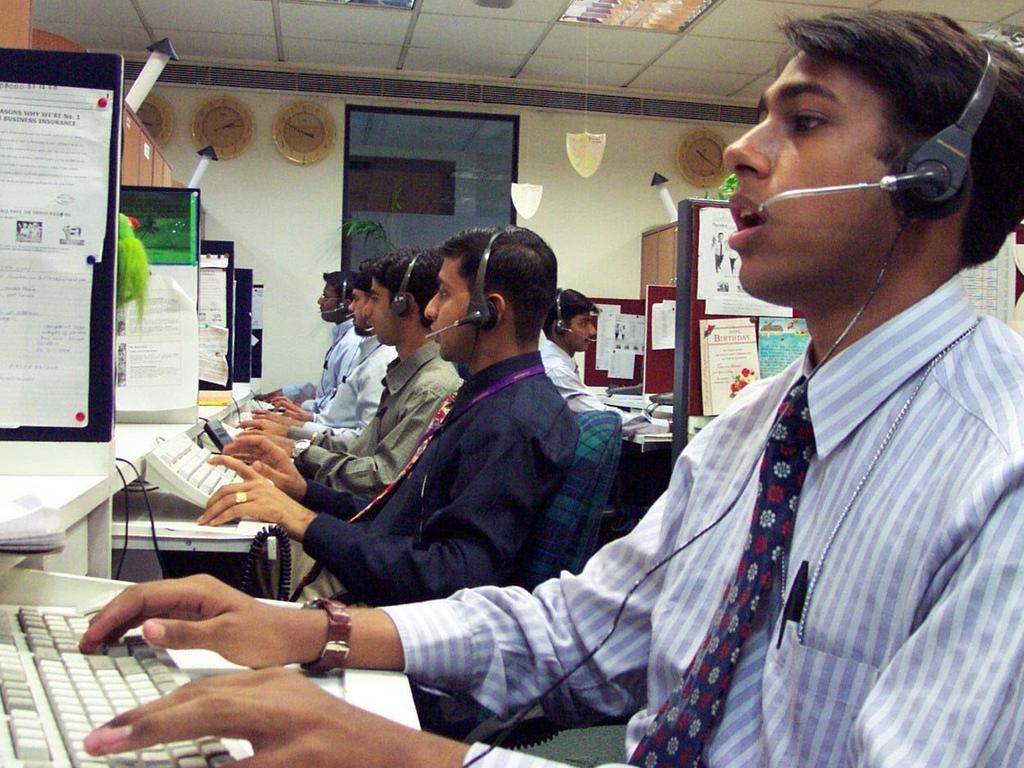Complaints about telco call centres surge 1500 per cent amid coronavirus
People have had a lot of be unhappy about so far this year – but when it comes to call centres, one thing led to a surge in customer complaints.

Australian telecommunications companies basing their call centre operations overseas is already frustrating enough for many, but there was a brand new reason to be annoyed at outsourcing in 2020, and people complained about it in droves.
With the onset of the coronavirus pandemic, the cramped conditions of many call centres presented a perfect environment for the virus to spread, which is why most of them were shut down or at reduced capacity.
In the meantime, complaints from frustrated customers who were unable to get in contact with their telco prompted a 1500 per cent increase in people complaining about it to the Telecommunications Industry Ombudsman when compared to the year before.
“The worldwide shutdown meant that call centres and back office functions in the Philippines and India had to close so it was a very challenging time for everybody,” Ombudsman Judi Jones told news.com.au.
She added that “many have faced frustrations as providers worked to adapt to unprecedented challenges” that presented throughout 2020.
RELATED: Aussies’ internet use skyrockets

RELATED: Big issue with ‘ultra fast’ internet promise
Ms Jones said the telcos have largely adapted, but it’s too early to see if the experience will put them off outsourcing all their call centres or encourage them to invest in local operations.
“They’ve certainly diversified with a range of measures, some of them short-term and some of them may turn out to be longer-term, having people more easily able to contact them via a variety of measures plus additional people answering phones,” Ms Jones said.
Telco peak body Communications Alliance CEO John Stanton said the circumstances for the industry this year have been “very challenging”, but that telcos have risen to the challenge and proven their worth.
“The events have underlined the importance of telecommunications to Australians in their everyday lives, so it is encouraging that networks have coped well and that services are being delivered effectively and affordably.”
“While the TIO reports that the sudden and severe impacts of the pandemic on offshore and onshore contact centres produced a temporary spike in complaints about contactability of service providers, we understand that these have now returned to pre-COVID levels,” Mr Stanton said.
He also noted that the 1500 per cent increase in complaints was on an earlier base of just 127 for the previous year.
While complaints about not being able to contact telcos increased 1500 per cent year-on-year, they only made up a relatively small proportion of the total 127,151 complaints the Ombudsman fielded.
Internet services remained the most complained about type of service after overtaking mobile phone services last year.
Across the board the Ombudsman believes the telcos are getting their act together, noting that overall complaints fell by four per cent over the previous year, even with the pandemic surge.
“The four per cent decline in the face of summer bushfires and the pandemic is something to be pleased about,” Ms Jones said.
“I think it shows the effort the whole sector have put in to improving the outcomes for consumers so they are more likely to get the service they expect.”

Throughout the previous financial year the TIO identified and investigated 32 systemic issues and telcos agreed to make 35 improvements.
The systemic issues included the way telcos handled complaints and managed credit, as well as certain sales practices, how much information you receive from them before signing a contract, and issues that stem from those contracts.
Misleading telemarketing by retail service providers selling NBN services was one of them, and the call centre approach to customer service presented problems here as well, with staff giving inaccurate information about the product they were selling, and providing unclear terms of service “which was often too fast and difficult to understand” according to the TIO.
The unidentified company mentioned in the TIO report has since added a fully automated reading of the terms and conditions and requires staff to recap the key details of a plan to consumers before they agree to sign on, which the TIO said has reduced complaints.
Ms Jones said the best thing to do if you’re having a problem with your telco is to raise the issue as soon as possible.
“If you’ve got a problem with a telco talk to them about it as soon as the problem arises because that’s when it’s easiest to resolve, and if you can’t resolve it give us a call: we’re free and we’re here to help,” Ms Jones said.



